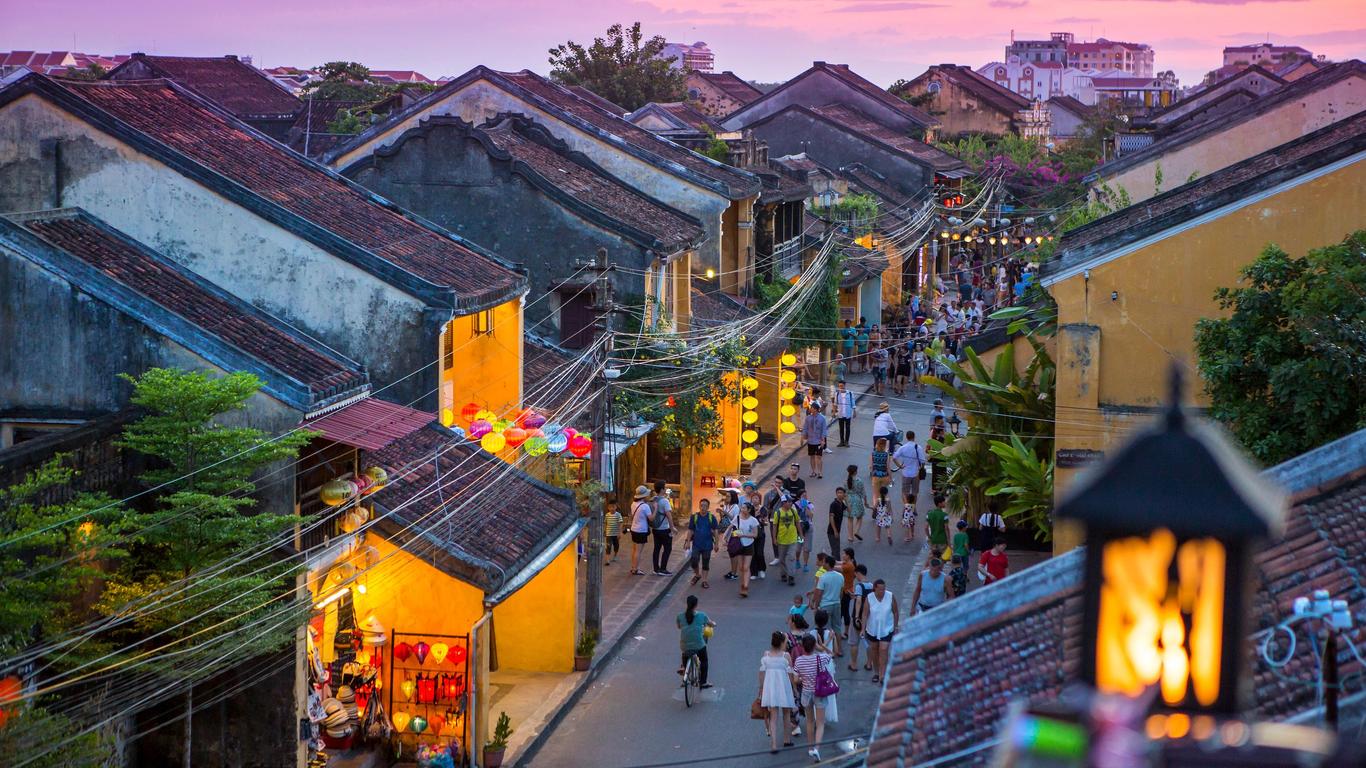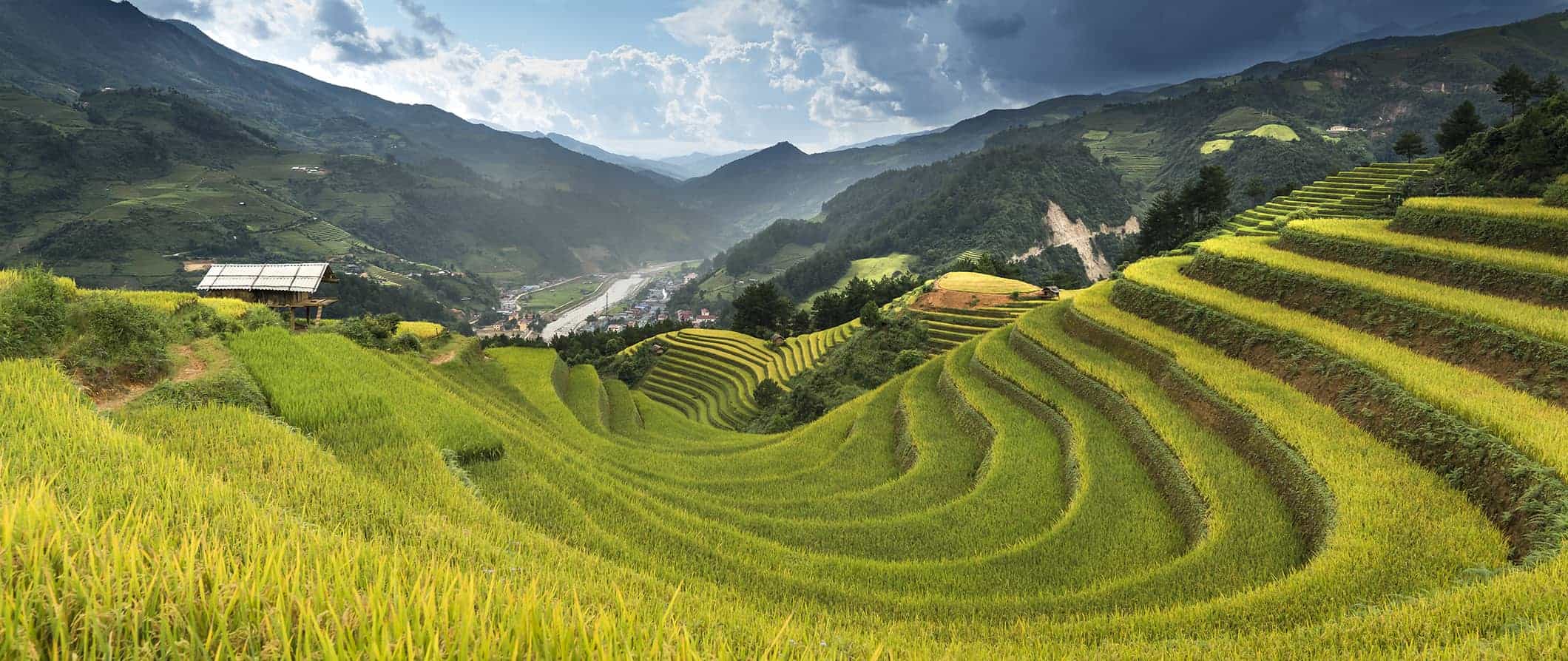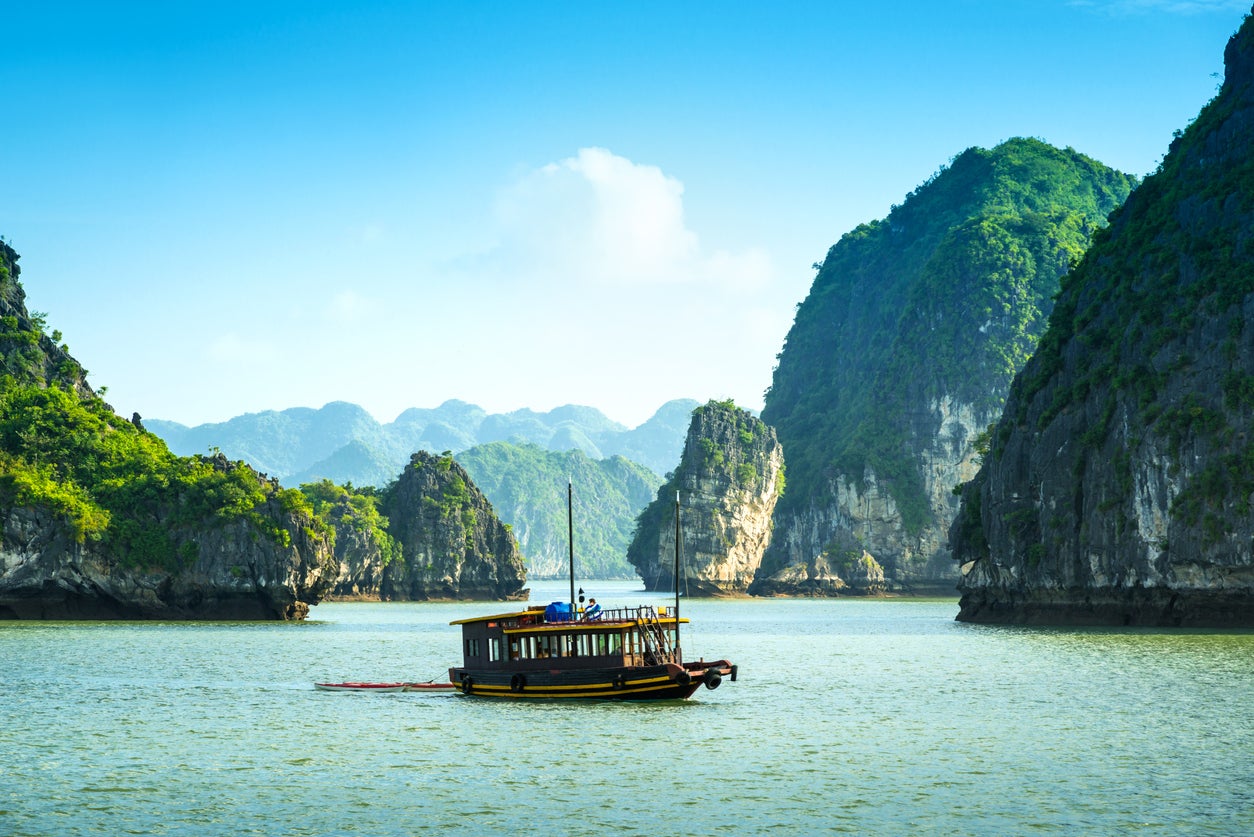A Comprehensive Guide for British Travellers Planning a Trip to Vietnam
Introduction to Vietnam
Overview of Vietnam
Vietnam, a vibrant Southeast Asian nation, is known for its rich history, stunning landscapes, and warm hospitality. Spanning over 331,000 square kilometres, this country is home to a diverse population of approximately 98 million people. From the bustling streets of Hanoi to the serene beaches of Da Nang, Vietnam offers a captivating blend of old and new. Key attractions include:
- Historic Cities: Explore ancient towns like Hoi An and the capital, Hanoi.
- Natural Wonders: Experience breathtaking landscapes in Ha Long Bay and the terraced rice fields of Sapa.
- Cultural Heritage: Discover fascinating traditions such as Tet, the Vietnamese New Year.
History and Culture
The history of Vietnam is a tapestry woven with influences from various dynasties, colonial rule, and wars. It boasts a rich cultural fabric influenced by Confucianism, Buddhism, and indigenous beliefs. Traditional arts such as water puppetry and silk weaving reflect the country's creative spirit. Notable historical milestones include:
- The founding of the first Vietnamese state, Van Lang, in 2879 BC.
- The impact of French colonialism and the struggle for independence.
- The reunification of North and South Vietnam in 1975 marked the conclusion of the Vietnam War.
Dive into Vietnam's culture, and you'll find an inviting community bound by unity, resilience, and a shared love for their heritage.
Planning Your Trip
Visa and Entry Requirements
Before embarking on your Vietnamese adventure, understanding the visa and entry requirements is essential. Depending on your nationality, you may need:
- Visa on Arrival: Perfect for tourists arriving by air, but ensure you apply for an e-visa beforehand.
- E-Visa: Available for citizens from over 80 countries, allowing a 30-day single entry.
- Visa Exemption: Some countries enjoy visa-free access for a limited duration—check to see if you're eligible!
Best Time to Visit
Choosing the right time to visit Vietnam can enhance your experience significantly. The climate varies across its regions:
- North (Hanoi, Sapa): Best visited from October to April for cooler temperatures.
- Central (Hue, Da Nang): March to August offers the best beach weather.
- South (Ho Chi Minh City): December to April is dry and festive.
No matter when you visit, Vietnam's charm and beauty are always waiting for you!
Accommodation Options
Hotels and Resorts
When it comes to lodging in Vietnam, you’ll find accommodation options that cater to every taste and budget. From luxury hotels to budget-friendly stays, the choices are vast. Some popular options include:
- Luxury Resorts: Escape to five-star resorts like the InterContinental in Da Nang, offering stunning beachfront views.
- Mid-Range Hotels: Consider the trendy hotels in Ho Chi Minh City, packed with modern amenities and excellent service.
- Budget Hostels: Ideal for backpackers, places like Hanoi’s Old Quarter provide a vibrant atmosphere without breaking the bank.
Homestays and Boutique Guesthouses
For a more authentic experience, homestays and boutique guesthouses are fantastic choices. You’ll not only have a roof over your head but also the chance to connect with locals. For example:
- Homestays in Sapa: Experience the mountainous culture and enjoy home-cooked meals.
- Boutique Guesthouses in Hoi An: Enjoy charming, individually styled rooms often run by local families.
These options enrich your travel experience and offer a glimpse into everyday Vietnamese life!
Must-Visit Destinations
Hanoi
As the capital city, Hanoi is a fusion of history and modernity. Strolling through its streets, you’ll be captivated by:
- Historic Sites: Visit the Ho Chi Minh Mausoleum and the ancient Temple of Literature.
- Charming Old Quarter: Get lost in its narrow lanes filled with street vendors and quaint cafes.
- Local Cuisine: Don’t miss out on trying pho at a local eatery or sipping egg coffee at Giang Café.
Each corner tells a story, making Hanoi a perfect introduction to Vietnam's cultural tapestry.
Ha Long Bay
A UNESCO World Heritage site, Ha Long Bay is renowned for its otherworldly limestone islands and emerald waters. Activities to consider include:
- Cruise Tours: Spend a day or two on a traditional junk boat exploring hidden caves and floating fishing villages.
- Kayaking Adventures: Paddle through serene waters, taking in breathtaking scenery up-close.
- Overnight Stays: Experience the magic of the bay under a blanket of stars.
Ha Long Bay truly encapsulates Vietnam's natural beauty, making it an unforgettable stop on your journey!

Experiencing Vietnamese Cuisine
Local Dishes to Try
Vietnamese cuisine is a delightful journey of flavours and textures that you simply can’t miss. Here are some must-try dishes:
- Pho: This iconic noodle soup, often enjoyed for breakfast, features fragrant broth, rice noodles, and your choice of beef or chicken.
- Banh Mi: A delicious fusion of French and Vietnamese influences, this baguette sandwich is filled with meats, pickled vegetables, and fresh herbs.
- Goi Cuon: Also known as fresh spring rolls, these refreshing bites are wrapped in rice paper and filled with shrimp, vegetables, and vermicelli.
Street Food Culture
Street food is the heart of Vietnamese culinary culture. Scattered across cities, you’ll find vibrant stalls and carts serving up delectable dishes:
- Night Markets: Explore bustling night markets in cities like Hanoi, where you can sample everything from grilled meats to sweet desserts.
- Local Vendors: Eating at a street stall not only supports small businesses but also immerses you in local life. Don’t hesitate to join the locals at a small plastic stool for an authentic experience!
Indulging in Vietnamese cuisine and its street food culture is a flavorful adventure you won’t forget!

Transportation Tips
Getting Around Within Cities
Navigating Vietnam’s bustling cities can be an adventure in itself. Here are a few tips for getting around smoothly:
- Cyclo Rides: Experience the city at a leisurely pace on a cyclo, a three-wheeled bicycle taxi, ideal for short distances.
- Grab App: Download the Grab app for convenient ridesharing services, offering everything from motorbikes to cars—perfect for escaping the humidity!
- Public Buses: For the budget-conscious traveller, public buses offer an affordable way to explore, though they can be crowded during peak hours.
Taking Domestic Flights
Vietnam is a long country, and domestic flights can save you time. Key tips include:
- Book in Advance: Airlines like VietJet and Vietnam Airlines offer competitive prices and frequent flights between major cities.
- Airport Transfers: Consider pre-arranging transfers to and from the airport to avoid the hassle of local transportation after a long flight.
With these transportation tips, exploring Vietnam will be a breeze!
Cultural Etiquette
Dos and Don'ts
Understanding cultural etiquette in Vietnam is essential for a smooth and enjoyable visit. Here are some key dos and don'ts:
- Do: Dress modestly, especially when visiting temples and religious sites. Loose-fitting clothes that cover shoulders and knees are appreciated.
- Do: Use both hands when giving or receiving items to show respect.
- Don't: Point with your feet; feet are considered unclean and pointing with them can be seen as rude.
- Don't: Discuss sensitive topics like politics or the Vietnam War unless you know the person well.
Understanding Local Customs
Vietnamese customs reflect a deep respect for family and community. Greeting elders with a polite nod or a gentle bow shows your appreciation for their status.
- Dining Etiquette: Wait for the host to start eating before you dig in, and always try what's offered!
Being aware of these customs will enrich your cultural journey and foster respectful interactions.
Health and Safety
Vaccinations and Health Precautions
Before setting off for Vietnam, it’s wise to check with your healthcare provider about recommended vaccinations. Common vaccines include:
- Hepatitis A and B: Protect against liver infections from contaminated food and water.
- Typhoid: Important especially if you plan to visit rural areas.
- Tetanus: Ensure you’re up-to-date on this vaccination before your trip.
Additionally, pack a basic first aid kit with items like antiseptic wipes, band-aids, and any personal medications.
Tips for Staying Safe While Traveling
Staying safe while exploring Vietnam is all about being aware and prepared. Here are some practical tips:
- Avoid Tap Water: Stick to bottled water to prevent stomach issues.
- Secure Your Belongings: Use a crossbody bag and be cautious in crowded places.
- Stay Informed: Regularly check travel advisories for any updates or advisories in the areas you plan to visit.
By following these health tips and safety precautions, you can enjoy a worry-free adventure in Vietnam!
Shopping and Souvenirs
Popular Markets
When it comes to shopping in Vietnam, the local markets are a treasure trove waiting to be explored. Dive into the vibrant atmosphere of places like:
- Ben Thanh Market (Ho Chi Minh City): Here, you can find everything from handicrafts to fresh produce. Don’t forget to barter for prices!
- Dong Xuan Market (Hanoi): A bustling hub filled with textiles, souvenirs, and local snacks. Perfect for immersing yourself in the local culture.
Unique Items to Bring Home
As you browse, keep an eye out for unique souvenirs that capture the essence of Vietnam:
- Silk Products: Vietnam is famous for its high-quality silk. Scarves, ties, and dresses make fantastic gifts.
- Handcrafted Pottery: Look for beautiful ceramic pieces, especially those from Hoi An, to add a touch of Vietnam to your home.
- Coffee: Bring back some robust Vietnamese coffee; it's a delightful reminder of your travels.
Shopping in Vietnam is not just about souvenirs; it's also about connecting with the local culture and artisans!
Outdoor Adventures
Trekking in Sapa
If you're an adventure enthusiast, trekking in Sapa is an absolute must! Nestled in the northern mountains, Sapa offers stunning views and unique cultural experiences through its lush landscapes. You can:
- Explore Local Villages: Trek to picturesque villages like Ta Van and Cat Cat, where you'll encounter friendly locals and vibrant rice terraces.
- Guided Tours: Consider joining a guided trek for insider knowledge about the culture and stunning vistas, often led by members of the ethnic minority groups.
Water Activities in Phu Quoc
On the opposite end of the spectrum, Phu Quoc is perfect for those seeking sun and sand. Enjoy an array of water activities such as:
- Snorkeling and Scuba Diving: Dive into the crystal-clear waters around the island to discover vibrant coral reefs teeming with marine life.
- Island Hopping: Take a boat trip to nearby islands for a day of exploration, where you can relax on pristine beaches and indulge in fresh seafood.
Whether you’re trekking through mountains or lounging by the beach, Vietnam promises unforgettable outdoor adventures!

Volunteer and Sustainable Travel Options
Volunteer Opportunities
If you're looking to give back while discovering Vietnam, numerous volunteer opportunities allow you to make a positive impact on local communities. Some popular fields include:
- Teaching English: Many organisations seek volunteers to teach English to children and adults, making a significant difference in their educational journey.
- Wildlife Conservation: Joining projects focused on preserving endangered species and their habitats can lead to rewarding experiences in Vietnam's diverse ecosystems.
Eco-Friendly Travel Practices
Traveling sustainably ensures that your adventure benefits both you and the environment. Here are some eco-friendly practices to consider:
- Public Transport: Use buses or trains over domestic flights to reduce your carbon footprint while exploring the country.
- Local Cuisine: Eat at local restaurants that source their ingredients sustainably, supporting local farmers and reducing packaging waste.
- Responsible Souvenir Shopping: Opt for handmade items that support local artisans rather than mass-produced goods.
Embracing volunteer work and sustainable travel practices not only enriches your journey but also contributes to the well-being of the places you visit!
Language Basics
Useful Vietnamese Phrases
Learning a few Vietnamese phrases can enhance your travel experience and help you connect with locals. Here are some handy expressions to get you started:
- Xin chào! (Hello!)
- Cảm ơn! (Thank you!)
- Xin lỗi! (Sorry!)
- Tôi không hiểu. (I don’t understand.)
- Bao nhiêu tiền? (How much is this?)
Being able to communicate even at a basic level shows respect for the culture and can lead to warmer interactions.
Language Tips for Travelers
To navigate the language barrier smoothly, consider these tips:
- Use Translation Apps: Download apps like Google Translate for quick assistance with difficult phrases or menu items.
- Practice Pronunciation: Vietnamese is a tonal language, so take time to listen and mimic. Phonetics can significantly impact the meaning of words!
- Be Patient and Polite: If someone has trouble understanding you, remain patient and smile—local vendors will appreciate your effort!
With these language basics, you’ll feel more confident and ready to immerse yourself in Vietnam’s rich culture!
Currency and Money Matters
Currency Exchange
Vietnam's official currency is the Vietnamese Dong (VND). When planning your trip, consider a few tips for currency exchange:
- Exchange Rates: Check the current exchange rate before you go. Rates can fluctuate, so it’s best to get an idea of what to expect.
- Exchange Locations: While airports and hotels offer currency exchange services, you may find better rates at local banks or dedicated exchange counters in cities.
Using ATMs and Credit Cards
ATMs are widely available in cities and tourist areas, making it easy to withdraw cash. Here are some things to keep in mind:
- Fees: Check with your home bank about international withdrawal fees, as these can vary.
- Credit Cards: While credit cards are accepted in many establishments, smaller restaurants and shops may prefer cash, so always have some Dong on hand.
- Safety Tip: For safety, use ATMs located in well-lit, populated areas.
By being informed about currency and financial matters, you can fully enjoy your adventure in Vietnam without any money-related worries!

Technology and Connectivity
SIM Cards and Mobile Data
Staying connected while in Vietnam is seamless, thanks to the availability of affordable SIM cards. When you arrive, consider these tips for mobile data:
- Purchase Options: Major providers like Viettel, Mobifone, and Vinaphone offer SIM cards at the airport and local shops.
- Data Plans: Look for plans that cater to tourists, providing ample data at a reasonable price for social media, navigation, and more.
- ID Requirement: Remember to bring your passport, as it is often required to register your SIM card.
Internet Access in Vietnam
Internet access is generally reliable across cities and urban areas. While Wi-Fi is commonly available in hotels, cafes, and restaurants, here are a few handy points:
- Cafes: Places like Highlands Coffee or chain restaurants often provide free Wi-Fi—perfect for staying connected while you sip on delicious Vietnamese coffee.
- Speed: Expect decent internet speed in cities, but it may be slower in rural areas.
With these connectivity tips, you’ll be well-equipped to navigate and share your experiences in Vietnam!
Conclusion and Final Tips
Recap of Key Points
As you prepare for your adventure in Vietnam, keep these key insights in mind:
- Diverse Destinations: From the historical charm of Hanoi to the breathtaking landscapes of Ha Long Bay and the outdoor thrills in Sapa and Phu Quoc, there’s something for everyone.
- Cultural Etiquette: Respect local customs and learn a few Vietnamese phrases to foster meaningful connections.
- Sustainable Travel: Consider volunteer opportunities and eco-friendly practices to give back while enjoying your trip.
Last-Minute Travel Advice
As a final note, don’t forget to:
- Stay Flexible: Be open to spontaneous adventures and new experiences; some of the best moments come unexpectedly.
- Pack Light: Vietnam’s diverse climate necessitates versatile clothing—remember that laundry services are widely available.
- Enjoy the Journey: Immerse yourself in the sights, sounds, and flavours—Vietnam is waiting to leave you with unforgettable memories!
With this guide in hand, you’re set for an incredible journey through Vietnam! Safe travels!
